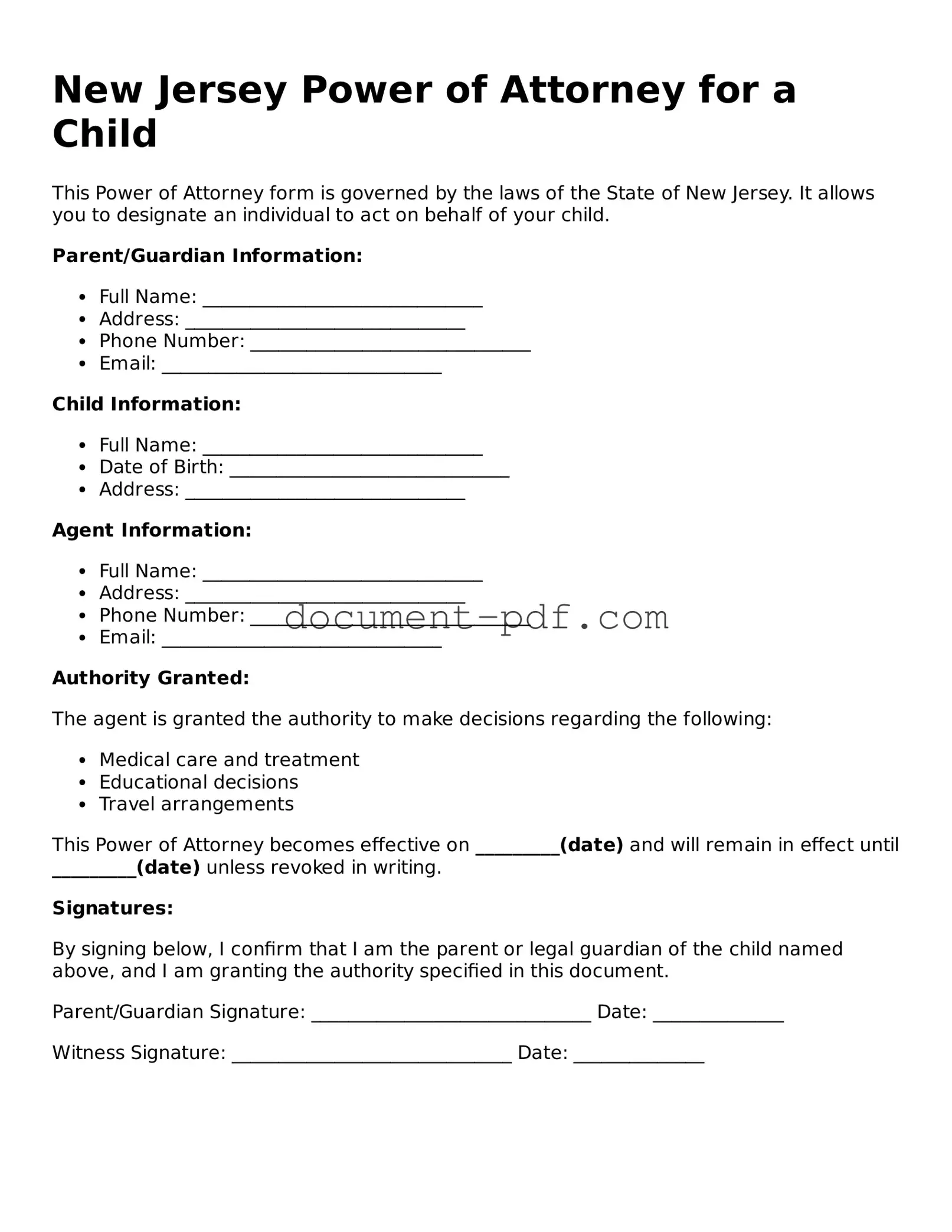Attorney-Verified New Jersey Power of Attorney for a Child Template
The New Jersey Power of Attorney for a Child form is a legal document that allows a parent or guardian to grant another individual the authority to make decisions on behalf of their child. This form is particularly useful in situations where the parent may be temporarily unavailable, ensuring that the child's needs are met without interruption. Understanding the nuances of this form can help caregivers navigate their responsibilities effectively.
Ready to fill out the form? Click the button below!
Access Power of Attorney for a Child Editor Here

Attorney-Verified New Jersey Power of Attorney for a Child Template
Access Power of Attorney for a Child Editor Here
Finish the form without slowing down
Edit your Power of Attorney for a Child online and download the finished file.
Access Power of Attorney for a Child Editor Here
or
Click for PDF Form
